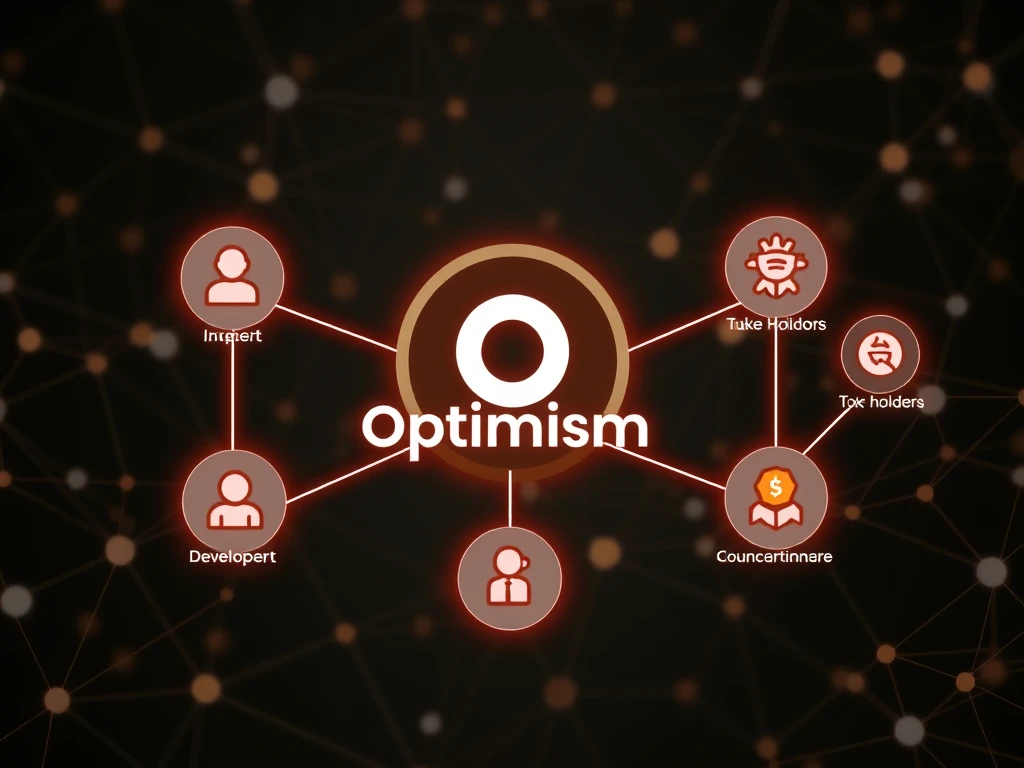Optimism Advances Decentralization with Major Season 8 Governance Revamp

Big news from the world of Ethereum layer-2 scaling solutions! Optimism, a prominent name in the space, is rolling out significant updates to its governance system. This isn’t just a minor tweak; it’s a comprehensive revamp designed to push the network towards greater decentralization and efficiency. Starting August 1st, the changes introduced in ‘Season 8’ aim to make participating in network decisions more accessible and less burdensome for contributors.
Optimism Targets Decentralization in Season 8
The core goal of Optimism’s Season 8 update is to enhance its governance model, moving closer to a truly decentralized system. The team emphasizes creating a structure that lowers platform risk by ensuring accountability across various participants, a key departure from traditional corporate models.
Key changes arriving with Season 8 include:
- Introduction of defined stakeholder voting groups.
- A public and verifiable definition of network citizenship.
- An ‘optimistic approval process’ for proposals, allowing most to auto-pass unless vetoed.
The previous governance season focused on interoperability, demonstrating Optimism’s iterative approach to building a robust ecosystem.
Strengthening Governance Through Stakeholder Representation
To ensure diverse voices are heard, Optimism has formally defined four key stakeholder groups:
- Tokenholders
- End-users
- Apps
- Chains
This multi-stakeholder approach is designed to prevent any single group, particularly financial stakeholders, from dominating decision-making. The aim is to reduce platform risk and create a governance model accountable to the entire collective.
Optimism’s governance currently operates through two houses:
- The Token House: Uses token-weighted voting for decisions like protocol upgrades and fund allocation. Tokenholders remain a crucial stakeholder group here.
- The Citizens’ House: Introduced in April 2022, it operates on a one-vote-per-citizen model, representing a different facet of participation.
While a public definition of citizenship now exists, categorized into end-users, apps, and chains, the team notes that citizenship remains an ‘experiment’ and future eligibility may change.
How the New Auto-Pass System Works
Perhaps one of the most significant operational changes is the introduction of an ‘optimistic approval process’ for most proposals. Starting in August, proposals will automatically pass unless a designated stakeholder issues a veto.
This shift is intended to drastically reduce the burden on contributors and governance participants. The Optimism team highlights that engaging in governance shouldn’t require extensive time commitment, reading endless forum posts, or navigating complex bureaucracy. This auto-pass mechanism, coupled with the veto option, allows busy individuals to still provide checks and balances without needing constant, full-time political engagement.
Resource budgets, proposed by a budget board, will also follow this veto-based approval process. Protocol upgrades will be overseen by an independent developer advisory board acting on behalf of both the Token House and the Citizens’ House.
The Path Forward for Optimism Governance
Optimism’s Season 8 governance revamp represents a bold step towards achieving its goal of true decentralization. By formalizing stakeholder representation, defining citizenship, and implementing an efficient auto-pass system, the network is attempting to build a governance model that is both accountable and sustainable for the long term. While aspects like citizenship are still under development, these changes lay the groundwork for a more robust and less centralized future for the Optimism blockchain and its ecosystem. These developments are key for anyone following crypto governance trends.







